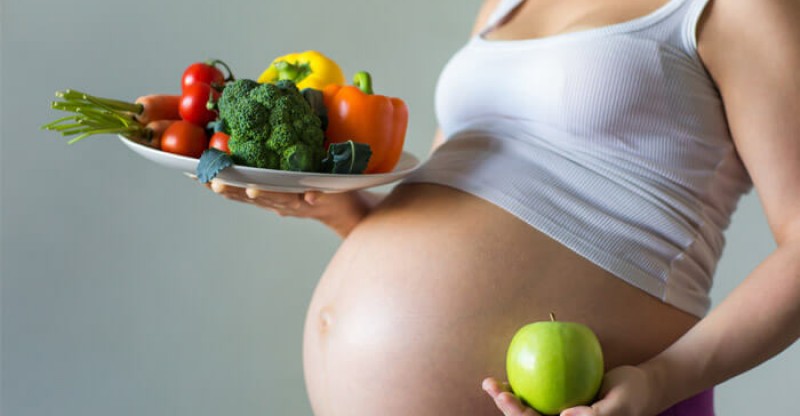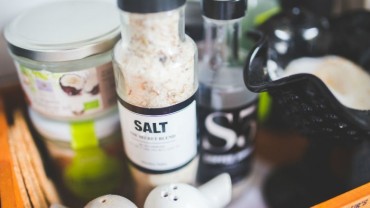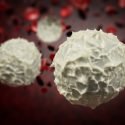12 Foods and Beverages You Should Avoid During Pregnancy
Pregnancy is a very beautiful phase in a woman’s life, in which you will experience changes not only in your body but also in your attitude, your emotions, your priorities and the way you feel about yourself.
They will be 9 months in which all the decisions you make with your body and health will no longer affect just you, but also another life that’s growing inside you.
With all these changes, it is only natural to make some adjustments to your diet as soon as possible, so that you can have a happy and healthy pregnancy.
When you’re expecting, whatever you eat may affect your child’s health both during pregnancy and after birth.
Eating for two comes with great responsibility, and while there are many essential foods to eat during pregnancy, there are certain foods that you should avoid because they can be dangerous to your baby, so you should pay attention to your diet now more than ever.
Here are 12 foods and beverages you should avoid during pregnancy.
Certain Fish and Seafood
You don’t need to give up all kinds of seafood, just certain types of fish that may contain chemicals that are bad for your baby.
High mercury fish should be avoided because its consumption during pregnancy can lead to brain damage and development delays.(1)
These types of fish include swordfish, shark, tuna, and king mackerel.
Smoked fish you usually get from the deli section is not such a good idea either, since those that come with labels such as lox, jerky, nova style or kippered may be contaminated with Listeria.(2)
Finally, raw shellfish like mussels, oysters, and clam can cause waterborne illnesses, so it’s best to avoid them during this time.
However, it is essential to include Omega-3 fatty acids in your diet, which fish are very rich in.
You can consume low-mercury, freshly cooked fish such as salmon, anchovies, sardines, and trout up to two times per week.
Unpasteurized Dairy Products
Though it’s important to consume dairy during pregnancy because of its high calcium, proteins, and minerals, there are certain products that should be avoided.
When buying milk, make sure the label says it’s pasteurized, or consume non-dairy alternatives such as soy milk, almond milk, and rice milk.
Soft cheeses, for example, are usually made with unpasteurized milk and can be dangerous and even life-threatening for you and your baby, because they may harbor E. coli, Listeria, Salmonella, and Campylobacter which can cause miscarriage, premature delivery, and other fetal complications.(3)
These types of cheese include brie, camembert, feta, blue cheese and panela, and should not be consumed during pregnancy unless the label says it’s made with pasteurized milk.
Hard cheeses such as cheddar and parmesan are usually safe for consumption during pregnancy.
Undercooked Meat
Undercooked or raw meat can increase the chances of infection from several bacteria and parasites, seeing that they can harbor Toxoplasma, E. coli, Listeria and Salmonella.
These types of bacteria can threaten the health of your baby, possibly leading to severe neurological illnesses such as blindness and epilepsy (4).
Make sure to cook your poultry and meat thoroughly, so there’s no trace of pink blood; cooking these foods at a safe temperature can kill the bacteria, you can use a thermometer when cooking to make sure the temperature reaches at least 145 F for whole cuts, 160 F for ground meats like hamburger, and 165 F for chicken breasts.
Be especially careful with minced meat and sausages, since these types of meat can become infected with different bacteria during processing or storage, so the only way you should eat them is when they’ve been reheated until steaming hot.
Undercooked or Raw Eggs
Eggs can be a great source of protein, but you need to eat them well-cooked, since runny, undercooked or raw eggs may be contaminated with Salmonella.
Because your immune system is weaker during pregnancy, you’re more susceptible to bacteria that cause food poisoning, and while Salmonella may not directly harm your child, it can lead to sickness in the mother such as fever, nausea, vomiting, stomach cramps and diarrhea.
In some very rare cases, it may even cause uterus cramps which can lead to premature birth or stillbirth.(5)
You should avoid poached eggs, hollandaise sauce, homemade mayonnaise, homemade ice cream, cake icing, cake batter and cookie dough.
Unwashed Fruits and Vegetables
If you’re used to cooking or eating your vegetables without washing them first, be sure to stop doing it during pregnancy!
Besides containing toxic pesticides, the skin of fruits and vegetables can contain toxoplasma, gondii parasite, and listeria, which can cause damage to the mother as well as to the fetus.(6)
In order to avoid being infected, wash your fruits and vegetables thoroughly and peel them before eating them.
Raw Vegetable Sprouts
This goes to everyone, regardless of pregnancy, since the FDA recommends not to eat raw sprouts including alfalfa, clover, radish, and mung bean sprouts.(7)
This because bacteria and viruses can get into sprouts seeds and are almost impossible to wash out, possibly causing bad food poisoning, E. coli, and Salmonella.
A single sprout can contain an infectious dose of salmonella, as these bacteria proliferate quickly and sprouts from the contaminated seeds.
E-coli and salmonella bacteria may cause diarrhea, nausea, abdominal cramping, fever and other illnesses in the pregnant mother, after birth, they can cause diarrhea, fever, and meningitis to the baby.
Vegetable sprouts are excellent sources of protein and minerals, so it’s good to eat them only when they are shallow fried or cooked, which can also give them a different, delicious taste.(8)
Caffeine
Though you may be used to drinking several cups of coffee a day, it’s important to limit caffeine consumption during pregnancy.
Too much caffeine is never good for you, but it can become especially dangerous when you’re expecting, given that it acts as a diuretic and is linked to low birth weight.(9)
Caffeine is absorbed very quickly and goes easily to the placenta and the fetus, where they don’t have the enzyme needed to correctly process caffeine, which can restrict fetal growth.(10)
High caffeine levels in the placenta are also linked with a higher risk of infant death and birth problems, and an increased risk of diseases in adulthood such as diabetes and heart disease.
Remember caffeine is not only found in coffee, but also in many teas, energy drinks, sodas, and chocolate.
You don’t have to give up all of these beverages for good, just limit your amount of caffeine consumption to 200mg per day, which makes up for about two or three cups of coffee.
Fresh Fruit Juice
Just like unpasteurized dairy, unpasteurized juice can contain an array of harmful bacteria, including Listeria, Salmonella, E. coli, and Campylobacter.
Fresh-squeezed juice in restaurants, juice bars, or farm stands aren’t usually protected against these kinds of bacteria, so it’s better to only consume juices when the label says they are pasteurized; juice in boxes and bottles found in supermarket shelves are usually safe.
Furthermore, while fruit juice can contain many vitamins and minerals, there are some juices that should be consumed in moderation.
These include orange juice, since it may lead to heartburn or gastrointestinal discomfort due to the high amounts of Vitamin C, and juices with harmful ingredients like essence, antiseptic, hard sugar, and pigment.
Great juices to consume during pregnancy (as long as they are pasteurized) are apple juice, which contains iron that is required during pregnancy by the body; prune juice, which can alleviate constipation; and vegetable juices such as cucumber juice, Chinese cabbage juice, kermes radish juice, broccoli juice, lettuce juice and carrot juice.
Processed Junk Foods
Processed foods can be easy to prepare and time-saving, but they can be unhealthy for you and your baby.
When eaten occasionally, these foods may not pose a great danger, but if you’ve become accustomed to consuming them on a regular basis, you should limit them or better yet, avoid them completely.(11)
Processed foods may contain Listeria, which, as we already know, can be noxious for both you and your baby.
In addition, because of their high levels of preservatives, it may cause constipation and it can lead to weight gain because of the excessive amount of calories in them.(12)
Though you can indulge occasionally in your favorite junk food, remember processed products are very harmful to the fetus, given that they contain high levels of fat, sodium, they have additives, and lack of fiber, vitamins, and minerals.
Herbal Teas and Supplements
Though herbal teas are usually caffeine free, their safety is unclear when you are expecting.
Herbal teas can have just as powerful effects as prescription drugs, and they may have side effects as well.
The FDA doesn’t regulate the safety and effectiveness of herbal products the way it does prescription drugs and other medicines.
While most ingredients in herbal teas are safe as long as they’re consumed in small amounts, some are not, and there aren’t many studies of the effect of these ingredients in pregnant women.
Some of the herbs that you should avoid during pregnancy include herbs that contain stimulants or caffeine-containing supplements, guarana, kola nut, betel (Piper betle), Citrum Aurantium, Yohimbe, theobromine (cocoa extract), and Garcinia Cambogia.(13)
Due to the lack of reliable studies on the safety of herbal preparations during pregnancy, it’s probably best not to consume herbal teas without previously checking with your care provider.
Store-Bought Salads
However convenient pre-packaged salads may be, they can also be very unhealthy.
For starters, excessive amounts of sodium are added to prepackaged foods as preservatives to keep it from going bad and to help the food retain its flavor.
Too much sodium can lead to health problems for both you and your unborn child, such as high blood pressure and bloating.
In addition, you’re losing healthy vitamins, nutrients, and fiber because of processing and manufacturing.
Another unhealthy aspect about restaurant made salads is they contain way more calories than you would get from a fresh, homemade salad, which can ultimately contribute to weight gain.
Also, the fruit, vegetables, eggs, and meat may not be of the highest quality and may contain bacteria.
Fruits and vegetables need to be properly washed and chopped in clean surroundings.
Meat and eggs should be thoroughly cooked and of high quality.
This is why it’s better to buy your own ingredients and prepare your salads at home, where you know you’ll be careful and hygienic.
Alcohol
No amount of alcohol is safe to be consumed during pregnancy.
When you drink alcohol, it quickly travels through your bloodstream, goes through the placenta, and reaches your baby.
Your baby breaks down alcohol more slowly than you do, so he or she may end up with a higher level of blood alcohol.
This can endanger your baby in several ways: it increases the risk of miscarriage and stillbirth — even a single drink a day can raise the odds of miscarrying or having a baby with a low birth weight; it can also increase your baby’s risk of having problems with learning, speech, attention span, language, and hyperactivity.(14,15)
Furthermore, while drinking alcohol occasionally and in small amounts is not harmful, you should always be careful of your alcohol intake even if you’re not pregnant.
There are many benefits of staying sober, including better overall physical and mental health.
Conclusion
When you’re pregnant, taking care of how you eat is no longer important for your own well-being, another life depends on it.
There are many foods you will probably have a hard time giving up, but some sacrifices need to be made in order for your baby to be healthy both during pregnancy and after it’s born.
At the end of the day, nothing will ever matter more than the health and happiness of your child.
Do you know any other foods you should avoid when you are expecting?
If you have any pregnancy tips or suggestions, please leave a comment below.
FDA Compliance
The information on this website has not been evaluated by the Food & Drug Administration or any other medical body. We do not aim to diagnose, treat, cure or prevent any illness or disease. Information is shared for educational purposes only. You must consult your doctor before acting on any content on this website, especially if you are pregnant, nursing, taking medication, or have a medical condition.
HOW WOULD YOU RATE THIS ARTICLE?







It became a surprise to learn that orange juice can be harmful during pregnancy.
Thank you for sharing this eye-opening and, undoubtedly, useful information for every mom-to-be!